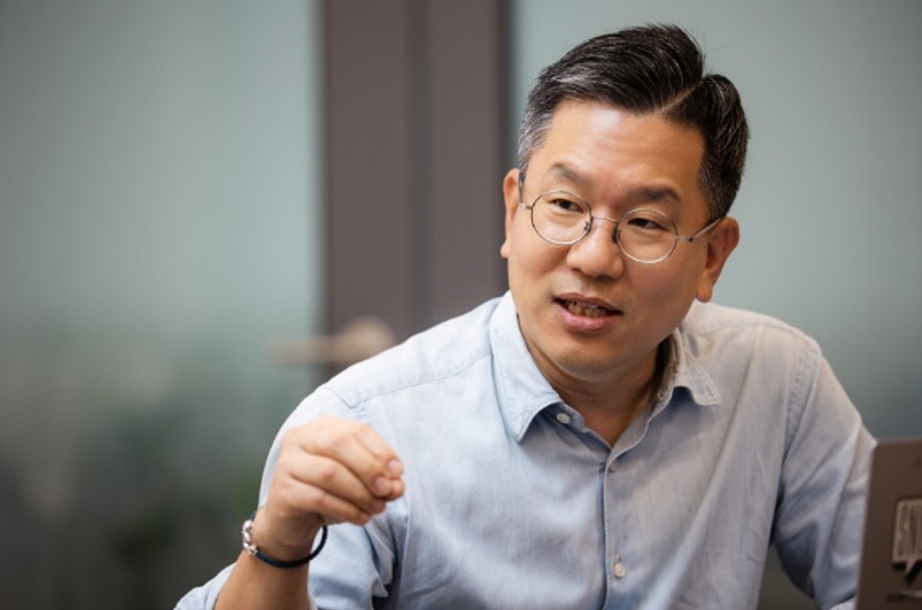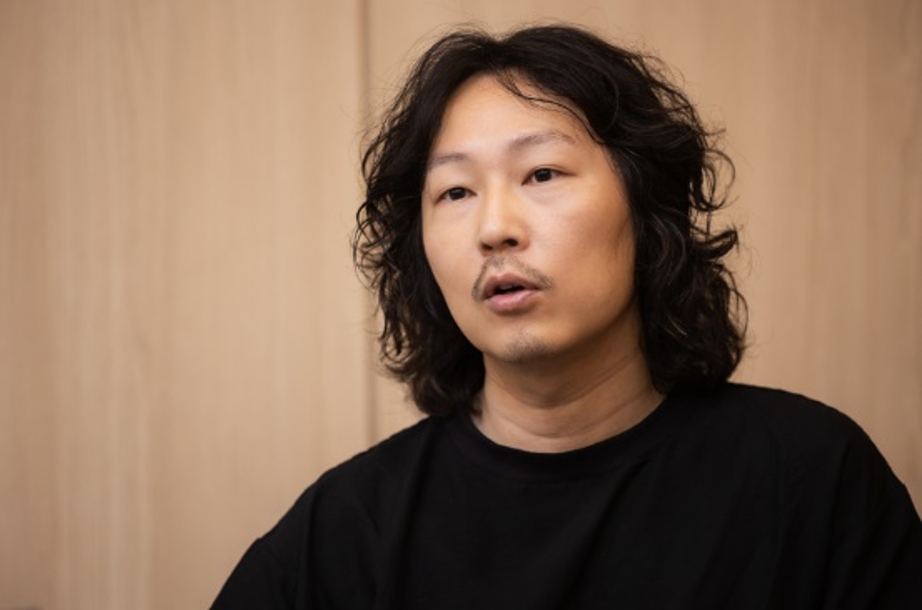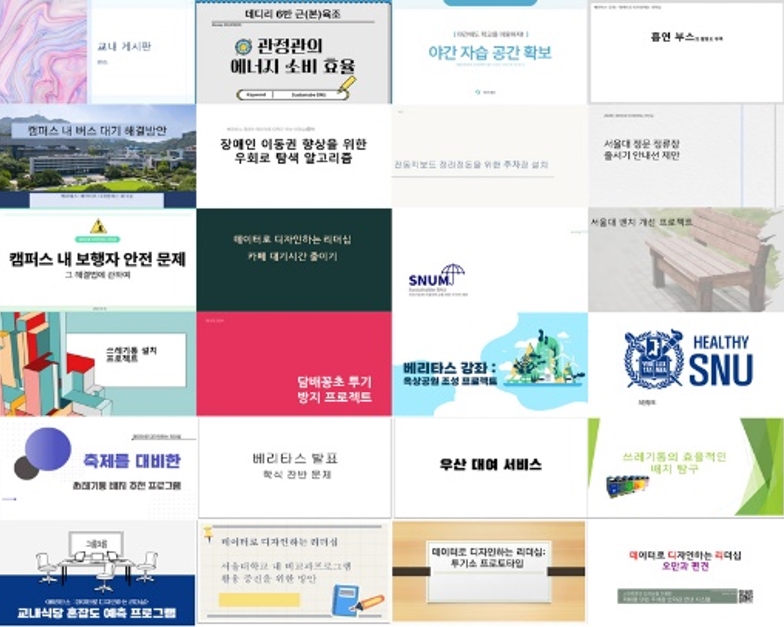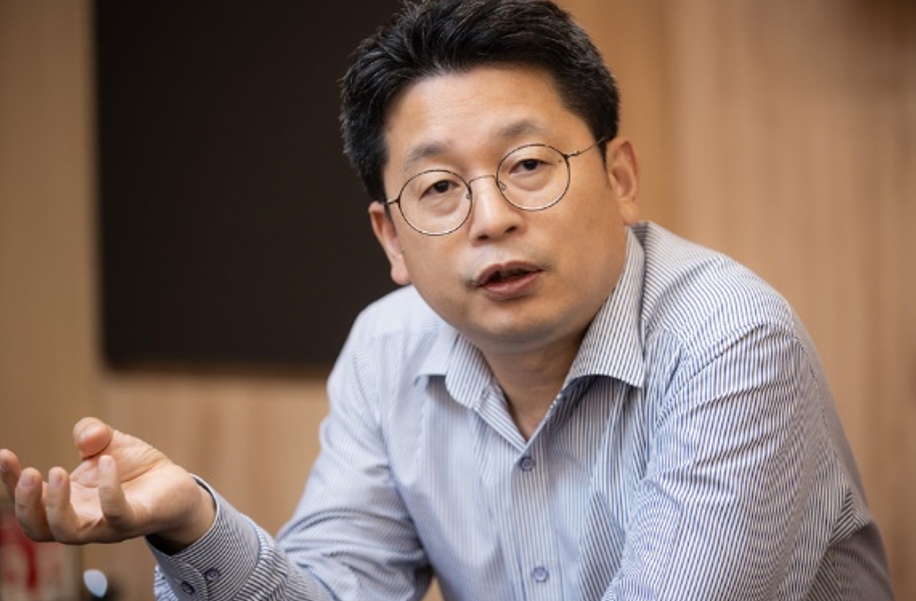"Leadership Designed with Data" This may sound unfamiliar to some. It is the title of a course offered last semester at Seoul National University as part of a trial under the Veritas program. The course aims to integrate ‘data’, ‘design’, and ‘leadership’ with a focus on improving sustainable campus environments. It is described as a "collaborative discussion class" focused on identifying problems and deriving solutions.
The course is co-taught by three professors from diverse fields: Professor Kilkon Ko (Graduate School of Public Administration) focused on identifying and analyzing data in public administration; Professor Jangsub Lee (Department of Design) connected social design with design thinking; and Professor Chan Lee (School of Transdisciplinary Innovations) guided students in leadership skills to implement solutions effectively. In collaboration with six teaching assistants and 110 students, the three professors jointly lead each class session. Three professors and six teaching assistants - at first glance, this might suggest a reduced workload for class preparation. However, due to the many experimental attempts in the course, the process proved to be three times more challenging, and the team was required to remain vigilant each week.

Professor Chan Lee
Professor Chan Lee shared, "On class days, the three professors and six teaching assistants would gather in the morning. We would discuss the day's lesson in advance, have lunch together, and then conduct the class. The teamwork among the professors was the key." Professor Jangsub Lee added, "Being an experimental course, there were naturally variable situations that arose. We needed to coordinate every week. Although we had a syllabus, the class required tremendous flexibility."
The professors also reflected on how the collaborative preparation often led to moments of mutual inspiration. Professor Kilkon Ko recalled, " Professor Jangsub Lee has been conducting social experiments in the design field for years. While we had only theorized about such things, seeing him share his firsthand experiences with students was impressive. Similarly, when Professor Chan Lee explained ‘leadership types,’ he used various media to make the concepts easily understandable, which made me reflect on my own teaching methods.”

Professor Jangsub Lee
Not only the professors, but also the six teaching assistants worked together as a team to think through and complete their projects. Acting as a bridge between the professors and the 110 students, the teaching assistants played a crucial role in keeping the class running smoothly by conveying feedback from the professors to the students and sharing students' responses with the professors.
They also listened to students' concerns about other subjects and campus life. "I believe the relationships we built by supporting students through their challenges had a positive impact on the class," said one teaching assistant. The teaching assistants still vividly remember the students collaborating in groups and brainstorming ideas. They shared some of the most memorable moments, recalling one particular project: "For a topic closely related to daily life, like how to reduce congestion at bus stops, students drew diagrams, analyzed data, and presented their findings. They explored multiple scenarios and solved problems through simulations. It was a project that yielded great results and remains especially memorable."

From left to right: Teaching Assistant Hyein Jo, Woorim Heo, and Jiyeong Hong

From left to right: Teaching Assistant Taehong Min, Teaching Assistant Jaea Choi
The Veritas class, broadly speaking, is an experiential course focused on problem-solving. Designed to foster active student participation and hands-on learning, the course represents a departure from traditional lecture formats. Professor Kilkon Ko explained, "Most lectures at SNU primarily focus on knowledge transfer. This class was different. The process of knowledge transfer was just the starting point. We wanted to give students the experience of forming knowledge through application, whether among themselves, with professors, or with teaching assistants. While teaching, I had a realization. I wondered if students without any necessary background knowledge could manage. Then it occurred to me that if we give students clear direction, they could accomplish it on their own. Students with humanities knowledge would write well, those with engineering knowledge would excel in coding, and those with social science knowledge would weave information into logical frameworks. I realized how autonomous and full of potential the students are."

A collection of cover pages from 24 team student presentations during the class
The professors selected "sustainability" as the key theme for the course, aiming to develop common core competencies among students. However, they wanted the students to engage with issues that were directly relevant to their own lives. Professor Kilkon Ko recalled, "We believed that students could contribute to society by learning how to work and think while finding data on their own. This kind of thinking structure doesn't develop overnight. So, we started with problems directly related to campus life. We had students practice finding issues by observing various places during campus tours, asking questions like 'Why are the benches worn out?', 'Why are there so few trash cans?', 'Why are there no smoking areas?', 'Why are the lines at coffee shops so long?'. We wanted students to discover questions from their everyday experiences, solve them, and contribute to meaningful solutions."

Professor Kilkon Ko
In 2025, along with the establishment of SNU college, the common curriculum 'Veritas' is planned to be implemented. The professors explained to the students why integrative thinking, the core value of Veritas curriculum, is necessary. Professor Jangsub Lee remarked, "You have to acknowledge imperfection. Until university education, it was a process of finding clear-cut answers. However, in reality, most social issues are difficult to solve with definitive answers. No matter how smart you are, you can only approach complex and challenging processes imperfectly. It's important to have an attitude that accepts imperfection."
Professor Kilkon Ko added, "Students often think that earning grades and acquiring knowledge are the outcomes of a class. However, the participation process is much more important. I hope students will consider and participate in the class as one where they gain a process, not just results. If they grow by discussing, conversing, and getting to know others, the class will become increasingly interesting."
Translated by Lee SiYun (Department of Applied Biology and Chemistry)

